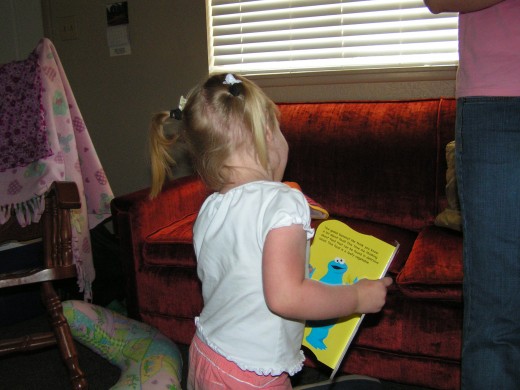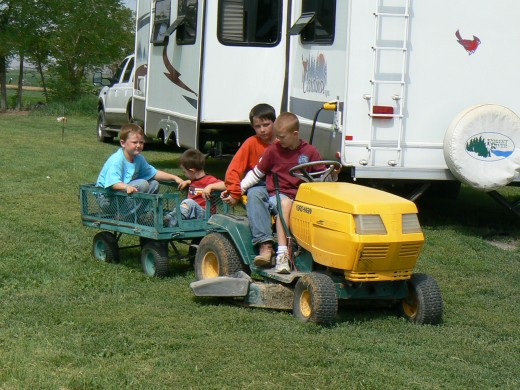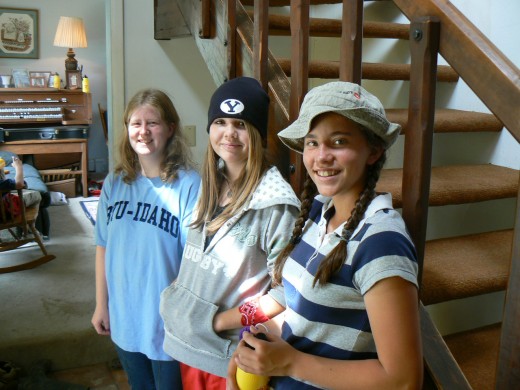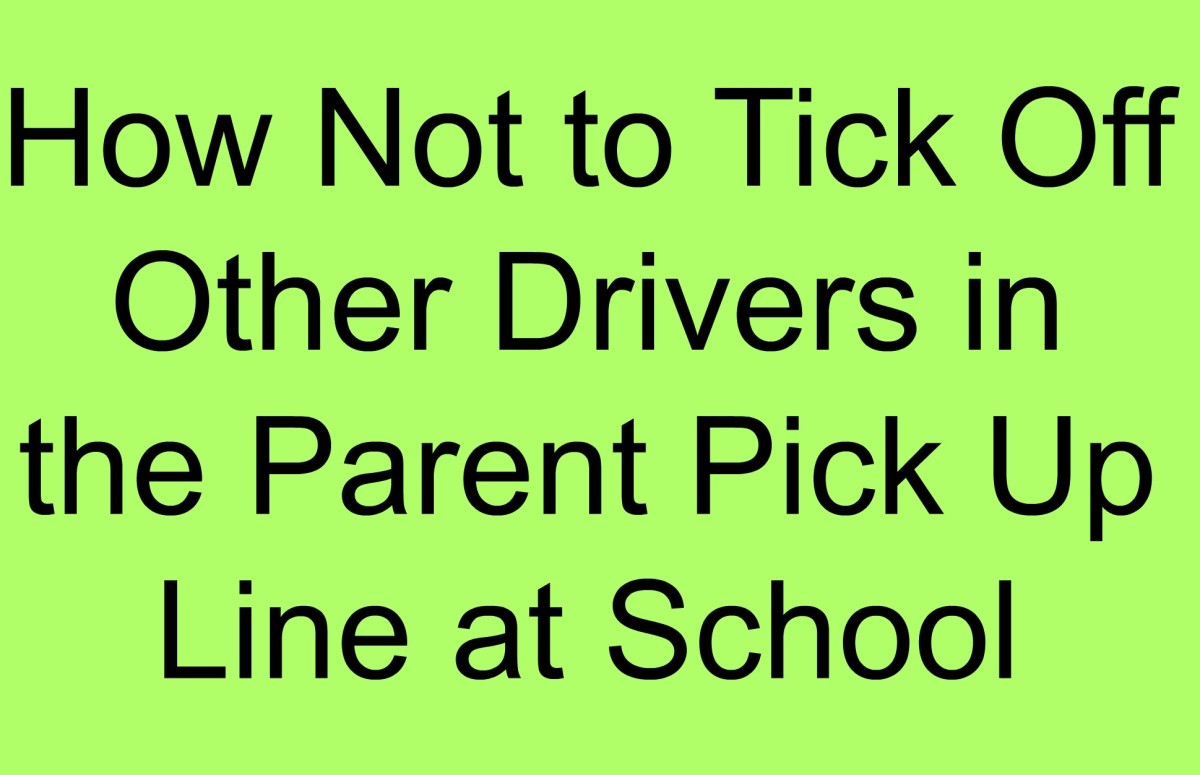- HubPages»
- Family and Parenting»
- Parenting Skills, Styles & Advice»
- Parenting Advice & Tips
Teaching Children Responsibility and Respect

What is Respect?
Respect is a feeling of esteem for another. It begins during the bonding process between infant and adult. The infant's earliest self esteem will be closely connected with how needs are met by the primary caregiver. Kindness is shown by a soft tone of voice. Love is demonstrated by a gentle touch. Hugs and kisses are evidence of unconditional love. All combined together lead the infant to esteem the adult as important and develop feelings of self-worth.
Start When They are Young
The old saying, "Give a man a fish and feed him for a day. Teach a man to fish and feed him for a lifetime," is true. Teaching children responsibility seems like a never-ending task, but looking beyond the frustration of the moment and the difficulty of the teaching process, the end result is respectable, responsible adults. There is no greater blessing parents can give than to prepare their children for life beyond high school. Responsibility and Freedom are two sides of the same coin, it is not possible to have one without the other.
Toddlers are wonderful helpers. They love to do things for their parents. Taking advantage of their eagerness to please, they can become a great asset to the busy homemaker. They are able to pick things up and put them where they belong, bring items from a cupboard or another room, hold something and then hand it to someone, sort by color/number/shape, fill containers that are empty, wash items in a sink or tub, stack plastic containers that fit together, fold small cloths, put clothing in a washer/dryer, or take them out and help put them away.
Toddlers need one-on-one time with their caregivers daily. Doing chores together gives the toddler a sense of importance and ownership in their own environment. Having them help make the bed, pick up clothes and put them away, and decide where toys belong, lets them know that order is an essential part of life. Helping them brush their teeth, comb their hair, and bathe also reinforces feelings of self-worth and belonging.

Teach Respect by Example
As the infant becomes a toddler, the respect relationship with the primary caregiver expands to a circle of adults who care for the child. These may be grandparents, aunts and uncles, or others who have close relationships with the family. When new people come into the child's world, it is necessary for the adult to demonstrate respect. Toddlers need to be introduced appropriately, with the adult modeling friendly behavior first, then the child will follow.
Teach Essential Skills
Children between the ages of 5-11 are able to do tasks independently that they learned as toddlers. They make their own beds, pick up clothing/toys, and take care of their personal needs. The problem, however, is that by doing these independently, they obtain no loving attention. There needs to be a time when attention is focused on them one-on-one for at least 15-20 minutes daily. During that time, teach additional skills or do an activity together, such as reading a book, playing a game, or cooking something.
Essential skills to be taught at this age are setting the table appropriately, cooking simple dishes or treats, taking care of eating and cooking utensils following a meal, emptying garbage cans, sweeping floors, dusting, sorting laundry, loading the washer or dryer, care of younger siblings with adult supervision, helping change sheets on beds, and putting things where they belong according to category. Creativity can be fostered by allowing them to do things differently, as long as they are completed within the required guidelines of the task.
A major part of the activities of children this age is learning to earn. Assignments may be given on a rotating basis that result in an allowance or points to spend and are completed before such freedoms as friends, computers, television, or time away from home. Additional funds or points can be earned by negotiating projects like helping wash the car, doing yard work, or making something for others to eat.

Teach Respect in Advance
Change is inevitable in the life of toddlers, whether a move, a new neighbor, different church, visit to the doctor, or advancement in the family. Talking about the change ahead of time helps the toddler know what to expect. The first time crossing the street, the first time at a stranger's home, and the first time in the grocery store will go much more smoothly if discussed and rehearsed ahead of time. Toddlers learn quickly, and will feel increased respect for their parents when they are prepared to face the world
Holding Children Accountable
Ages 12 and older are in the accountability years. Chores and essential skills have already been taught, now they are to be practiced regularly. Charts, graphs, point systems, learning to earn, and incentives for correct completion are needed to help children complete their assigned responsibilities. Setting goals and recording the results, working toward special activities, earning for a desired purchase, or planning special friend time helps them keep doing what is necessary.
Pre-teens and teens are capable of cooking full meals that are well-rounded and healthy; completing housecleaning tasks such as vacuuming, sweeping and mopping, taking care of a batch of laundry from start to finish, completing yard work tasks, being in charge of cleaning a particular room for a week, and taking care of pet facilities. The adult's responsibility is to provide encouragement during task completion, follow up to see that it is done according to the established pattern, and mark the appropriate chart/graph/points or meet out other incentives. The more responsibility shown, the more freedom is allowed. The less responsibility, the less freedom. The adult determines the responsibility standard and controls the amount of freedom earned. Allowing too much freedom before the teen shows adequate responsibility results in the teen making unwise choices that hurt themselves and others.

Teach Respect Through Supervision
Unsupervised children make unsupervised choices. They choose whatever they want, not what the parents want. When left to themselves for long periods of time, children end up with bathroom language and unclean actions. They fight, quarrel, and are rude to those they play with as well as their parents. Unchecked, they will continue the same type of behavior as teenagers and adults.
Respectful children do not happen by accident. Repect is taught by the adults in the child's world. They treat the child as important by being kind, considerate, and explaining things before and when they happen. In turn, the child will do the same for the adult, treating them with kindness and consideration as well.
Allowing Young Adults to Fly
Prepare teens for the time when they will leave home. See that they are adequately prepared to take care of their own education, living quarters, financial obligations, medical care, and vehicle maintenance. Once they have mastered these skills, they will be ready to leave home and go forward with their own future. Young adults well schooled in the responsibilities of life will be ready to enjoy the freedom of self-sufficiency, knowing that they will be able to make it on their own. Allowing them opportunities to work away from home, be at a college in a different community, or live with others and help care for their children gives them experience in making independent choices before they start families of their own. Then, when the wings of freedom are finally attached for good, they will be ready to fly away!
This content is accurate and true to the best of the author’s knowledge and is not meant to substitute for formal and individualized advice from a qualified professional.
© 2011 Denise W Anderson





